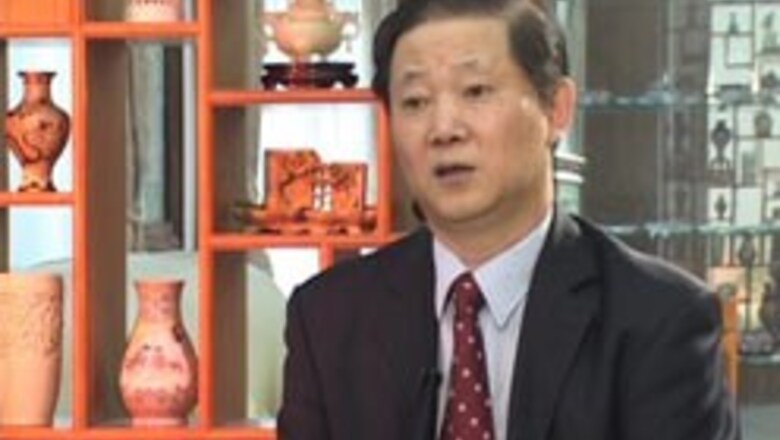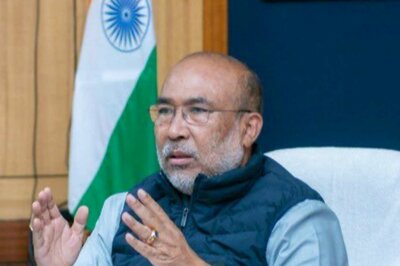
views
New Delhi: A Chinese remark reiterating its claim over Arunachal Pradesh and India's prompt rejection has cast a shadow over Chinese President Hu Jintao's four-day visit here next week.
The external affairs ministry, busy preparing for Hu's trip - the first by a Chinese head of state after a decade - was upset by Chinese Ambassador Sun Yuxi's remarks at a time when the two countries are exhibiting a new political will to resolve the border dispute and to deepen economic and strategic ties.
But while India expressed a strong disapproval of the Yuxi's remarks, China chose to play it safe.
Beijing on Tuesday sought to downplay the issue and said it was the "strategic goal" of the two countries to find an early, fair and rational solution to the vexed boundary issue.
"I have not seen such a report. I will make a double check," Chinese Foreign Ministry spokeswoman, Jiang Yu said.
Jiang also refused to comment on New Delhi's rejection of Beijing's claim that Arunachal Pradesh was Chinese territory.
Chinese Ambassador Sun Yuxi on Monday claimed that the east Indian state was "Chinese territory".
Sun had told CNN-IBN, "In our position, the whole of Arunachal Pradesh is Chinese territory and Tawang is only one place in it...We are claiming whole of that (Arunachal Pradesh). That is our position."
Later, while commenting on the larger India-China boundary issue and ongoing negotiations, Jiang said that it was the strategic goal of the two sides to find a mutually acceptable solution to the vexed boundary issue.
"The early solution of the border issue between China and India are the strategic goal of the two sides," she said.
"Both sides are devoted to find a fair and rational solution acceptable to all parties," she said.
Although the claim over Arunachal is nothing new, the timing of the envoy's remarks hasn't gone down well here and could affect the atmospherics during Hu's visit, which was being touted as a defining one that will cap a year of India-China friendship.
The border issue will be discussed between Prime Minister Manmohan Singh and Hu, but the Chinese are keen that the visit focuses on intensification of trade and investment between the two countries.
Several agreements are expected to be signed during the visit.
After Chinese Premier Wen Jiabao's visit to India last year that saw the finalisation of guiding principles and political parameters for resolving the border dispute, both sides have claimed that the border talks were progressing well and the two countries were close to a framework agreement.
China cites the Tawang Monastery, one of the last vestiges of Mahayana Buddhism, as evidence that the mountainous district of Tawang in Arunachal Pradesh once belonged to Tibet and that India should hand it back to help settle the row.
The dispute over the 3,500-km India-China border led to the 1962 war. New Delhi disputes Beijing's rule over 38,000 sq km of barren, icy and uninhabited land on the Tibetan plateau, which China seized from India in the 1962 war.
China, for its part, claims 90,000 sq km of territory in Arunachal Pradesh.
Within that disputed area is Tawang and its monastery.
The neighbours have held several rounds of talks since 1981 to resolve the dispute but have so far failed to make progress.



















Comments
0 comment